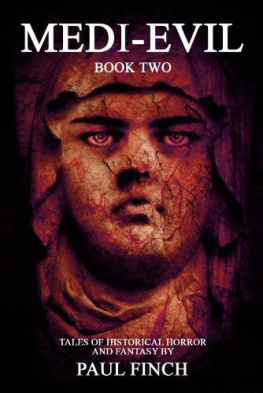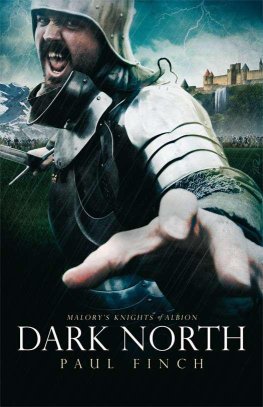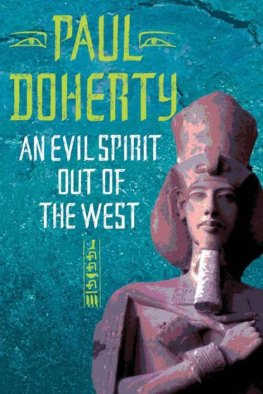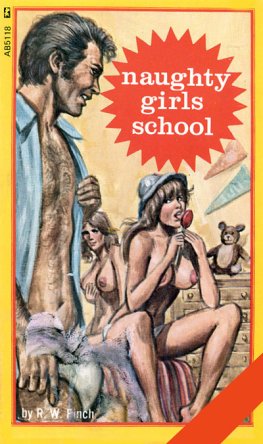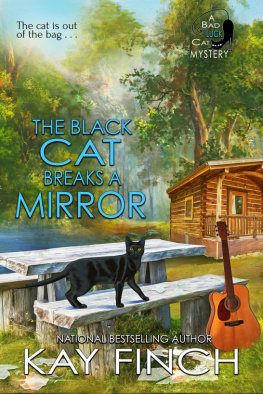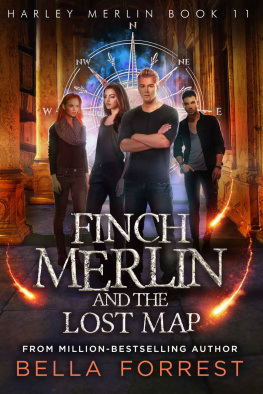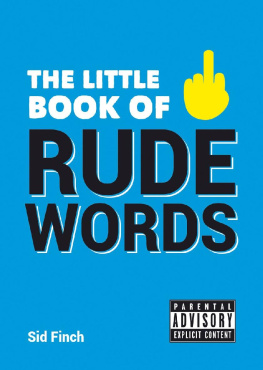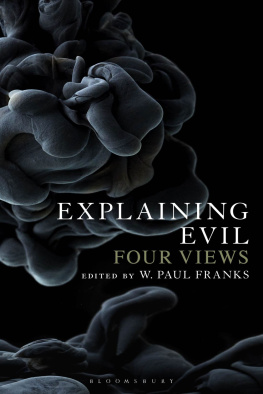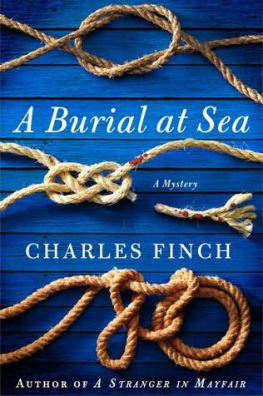Paul Finch - Medi-Evil 2
Here you can read online Paul Finch - Medi-Evil 2 full text of the book (entire story) in english for free. Download pdf and epub, get meaning, cover and reviews about this ebook. year: 2011, publisher: Brentwood Press, genre: Detective and thriller. Description of the work, (preface) as well as reviews are available. Best literature library LitArk.com created for fans of good reading and offers a wide selection of genres:
Romance novel
Science fiction
Adventure
Detective
Science
History
Home and family
Prose
Art
Politics
Computer
Non-fiction
Religion
Business
Children
Humor
Choose a favorite category and find really read worthwhile books. Enjoy immersion in the world of imagination, feel the emotions of the characters or learn something new for yourself, make an fascinating discovery.
- Book:Medi-Evil 2
- Author:
- Publisher:Brentwood Press
- Genre:
- Year:2011
- Rating:4 / 5
- Favourites:Add to favourites
- Your mark:
- 80
- 1
- 2
- 3
- 4
- 5
Medi-Evil 2: summary, description and annotation
We offer to read an annotation, description, summary or preface (depends on what the author of the book "Medi-Evil 2" wrote himself). If you haven't found the necessary information about the book — write in the comments, we will try to find it.
Paul Finch: author's other books
Who wrote Medi-Evil 2? Find out the surname, the name of the author of the book and a list of all author's works by series.
Medi-Evil 2 — read online for free the complete book (whole text) full work
Below is the text of the book, divided by pages. System saving the place of the last page read, allows you to conveniently read the book "Medi-Evil 2" online for free, without having to search again every time where you left off. Put a bookmark, and you can go to the page where you finished reading at any time.
Font size:
Interval:
Bookmark:
Medi-Evil 2
Historical Horror and Fantasy
by Paul Finch
Published by Brentwood Press
Kindle edition
Copyright 2011 Paul Finch
This ebook is licensed for personal enjoyment only. This ebook may not be re-sold or given away to other people. If you would like to share this book with another person, please purchase an additional copy for each recipient. If you are reading this book and have not purchased it or it was not purchased for your use only then please return it to amazon.com. and purchase your own copy. Thank you for respecting the hard work of the author.
Front Cover image iStockphoto.com/ duncan1890
Graphics by Eleanor Finch
Contents
English East Coast, March 1070
The road the ragged man followed had originally been constructed by the Romans. It struck southeast from the walled city of Lincoln, in Caesars time called Lindum, and followed a straight ridgeway of sod and stone erected by the legionaries to provide passage through the many meres and salt-marshes of that low-lying coastal region. Finally, it terminated at a great mound of rock overlooking a vast emptiness of sand and tidal water, which was known then by the name it is still known today the Wash.
In the old tongue of the British, that ominous mound on the very crest of which the Roman cohorts flung oaken ramparts and raised the eagle-banner to ward off Jute and Friesian pirates, had been named Caiar Formor , or Giants Throne. In later days, when Norse and Saxon struggled for supremacy in those eastern realms, the endless acres of sodden land lying betwixt Ely and the River Humber came under the dominance of the Five Burhs, the armoured citadels of the Viking Danelaw. As such, the fortress of Caiar Formor was granted as spoil to a Nordic chieftain, Wulfric Sawtooth. This old and hoary-headed warrior rebuilt the broken-down stockades, and on the foundation stones of the old Temple of Claudius raised his dragon hall, re-naming the mighty stronghold Wulfrics Burh. And so it remained, through the long years of civil strife and foreign incursion, until at last, every place from the Isle of Wight to Hadrians Wall, from Chester to Maldon, every cot and wold, every broad and byre and wood and fen lay under the happy control of a race bred from many disparate peoples, but all now melded together and called the English. And Wulfbury, as it was then called, belonged to Earl Eathelberht of Axholm, whose jewelled and gilded longhouse was a famed seat of wealth, and on the festive kalends of the year was alive with revelry.
But no good thing lasts forever.
So saw the ragged man that stormy night, as he huddled in his tattered cloak and walked in his worn wolfskin boots along the once-paved road, now a rutted track, and passed the charred, stinking ruins of mills and farms and once-thriving clutters of bogland cottages. For England now groaned under the yoke of crueller masters than it had ever known. The Norman horde of Duke William the Bastard, new-titled King and Conqueror, had seized this land by force of arms. But conciliation had not followed, and in the face of relentless stir and revolt, the fiery young suzerain had only this last winter opted to drive his army north to Durham, and en route had paid back those rebels by waging war on the very fabric of their land, burning crops and stores, slaughtering livestock, looting and raping, and littering the roads with innumerable dead.
As he headed east through the rain and darkness, the ragged man passed uncountable numbers of gibbets, each festooned with its own quota of serfs and cottars, most now bones and carrion and wreathed in the ungodly stench of decay. Trees and hay-derricks had been pressed into similar service; even the standing arch of a roadside chapel, now a burned, gutted shell, bore a glut of hanging forms, their taut ropes creaking in the wind. The ragged man pulled down the rim of his dripping hood and pressed on, for he had walked far and seen much the same along many moorland lanes, though, hardened to the horror as he was, he was loathe to understand how, almost overnight, this wealthy, ancient domain had turned to so foul a wilderness of misery and death.
It was midnight when he came in sight of Wulfbury mound, though much of its gaunt outline was lost in the murk. Famished and drenched, he at last reached the edge of its man-made ditch, where he teetered on what might have been his last legs. Though the floor of the ditch was invisible to him, he knew that sharpened stakes had been set upright down there. On the far side of it, perhaps fifteen feet away, there stood a great wall of pine-trunks, a towering palisade, and in the middle of that, directly across from the point where the road ended, a gateway in the manner of a drawbridge. Above this, obscured by the inky rain, he distinguished the bulky structure of the gatehouse.
He cupped his hands and shouted, though he was weak and hoarse. Hello in there! Hellooo!
When no reply came, he flung a stone at the drawbridge. It bounced from the sodden timbers with a hollow thunk , but still there was no response. The ragged man threw again, and again, each time choosing a larger missile, and at last aiming at the very hatches of the gatehouse itself. For Gods sake open up! he cried.
A single shutter lifted, firelight spilling into the rain.
Who the hell is it? came a voice in the hard Norman-French the ragged man was so used to. Be off with you, you wretch!
Gilbert! the ragged man called. Gilbert its me please
There was a brief, confused silence. Who is that?
Gilbert for Heavens sake! The ragged man was almost bent to his knees. Wind tore at his grizzled garb; raindrops hit him like pellets of ice. Gilbert its me!
Eric? came the voice, stunned. Holy mother of Christ!
There was a flurry of movement from within, a muffled shouting of orders, the blow of hammers as pegs were knocked loose, and finally the creak and grind of the drawbridge chains as it descended. Long before it lay flat, a figure had emerged from the torch-lit recess and hurried across the aged planks. He was tall but lean and now in late middle-age. As was the fashion for Norman men, he wore his white hair cropped close and was clean-shaven. The two of them met like the old friends they were, arms clasping, though even then the ragged man almost slumped to the ground.
I thought you dead, Gilbert said.
Nearly
Eric what happened to you?
Too much to tell now. Is my father at home?
Come in, Eric.
Eric leaned on Gilbert for support, and they crossed the bridge together, veering left through a doorway to the foot of a ladder, which rose ten feet to the gatehouse above.
Can you make it up there? Gilbert asked.
Eric nodded and began to climb, albeit slowly. At the top, he ascended into a spacious chamber constructed entirely from timber but clad with animal hides to keep out drafts. Torches hung in iron brackets, while in the centre of the room there was a brazier filled with hot coals. To one side, a rude table with benches at either end bore the remnants of an early-evening meal. Two other persons were present. One sat beside the table, the other stood close to the windlass by which the drawbridge was raised. By their padded leather hauberks and banded leggings, they were men-at-arms. Eric gave them only a cursory glance. To his knowledge, his father had at least forty such fellows in his employ. For the most part they were Bretons or Flemings who had come over during the invasion as mercenaries. Now that the bulk of the robbing and ransacking had been done, theyd found themselves with no option but to take up permanent positions as household militia. As a rule, they were a surly breed, and these two were no exception, as their scarred, brutal faces attested, though for the moment at least both regarded the new-arrival with wonderment rather than hostility. That someone of this ilk should have been admitted to the castle at so uncivilized an hour, let alone welcomed with open arms, was a new experience for them.
Next pageFont size:
Interval:
Bookmark:
Similar books «Medi-Evil 2»
Look at similar books to Medi-Evil 2. We have selected literature similar in name and meaning in the hope of providing readers with more options to find new, interesting, not yet read works.
Discussion, reviews of the book Medi-Evil 2 and just readers' own opinions. Leave your comments, write what you think about the work, its meaning or the main characters. Specify what exactly you liked and what you didn't like, and why you think so.

